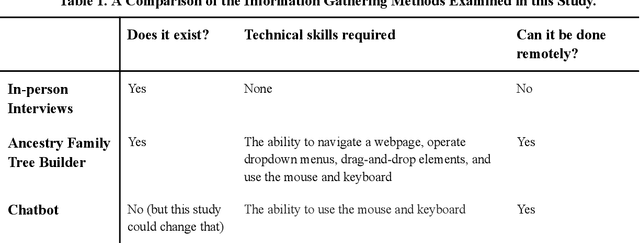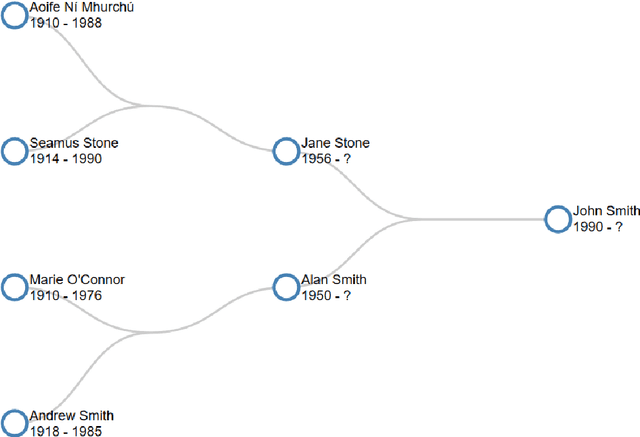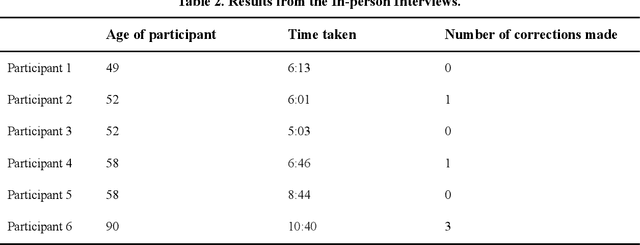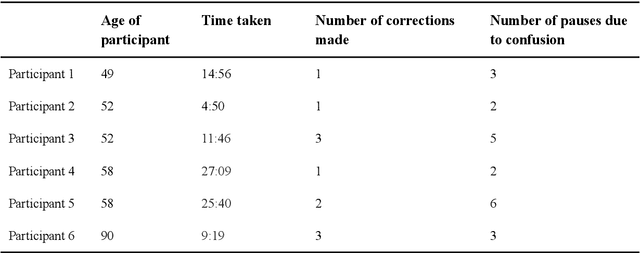Examining the Effectiveness of Chatbots in Gathering Family History Information in Comparison to the Standard In-Person Interview-Based Approach
Paper and Code
Sep 01, 2023



One of the most common things that a genealogist is tasked with is the gathering of a person's initial family history, normally via in-person interviews or with the use of a platform such as ancestry.com, as this can provide a strong foundation upon which a genealogist may build. However, the ability to conduct these interviews can often be hindered by both geographical constraints and the technical proficiency of the interviewee, as the interviewee in these types of interviews is most often an elderly person with a lower than average level of technical proficiency. With this in mind, this study presents what we believe, based on prior research, to be the first chatbot geared entirely towards the gathering of family histories, and explores the viability of utilising such a chatbot by comparing the performance and usability of such a method with the aforementioned alternatives. With a chatbot-based approach, we show that, though the average time taken to conduct an interview may be longer than if the user had used ancestry.com or participated in an in-person interview, the number of mistakes made and the level of confusion from the user regarding the UI and process required is lower than the other two methods. Note that the final metric regarding the user's confusion is not applicable for the in-person interview sessions due to its lack of a UI. With refinement, we believe this use of a chatbot could be a valuable tool for genealogists, especially when dealing with interviewees who are based in other countries where it is not possible to conduct an in-person interview.
 Add to Chrome
Add to Chrome Add to Firefox
Add to Firefox Add to Edge
Add to Edge